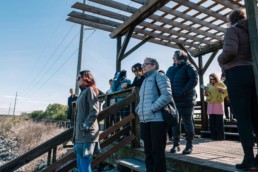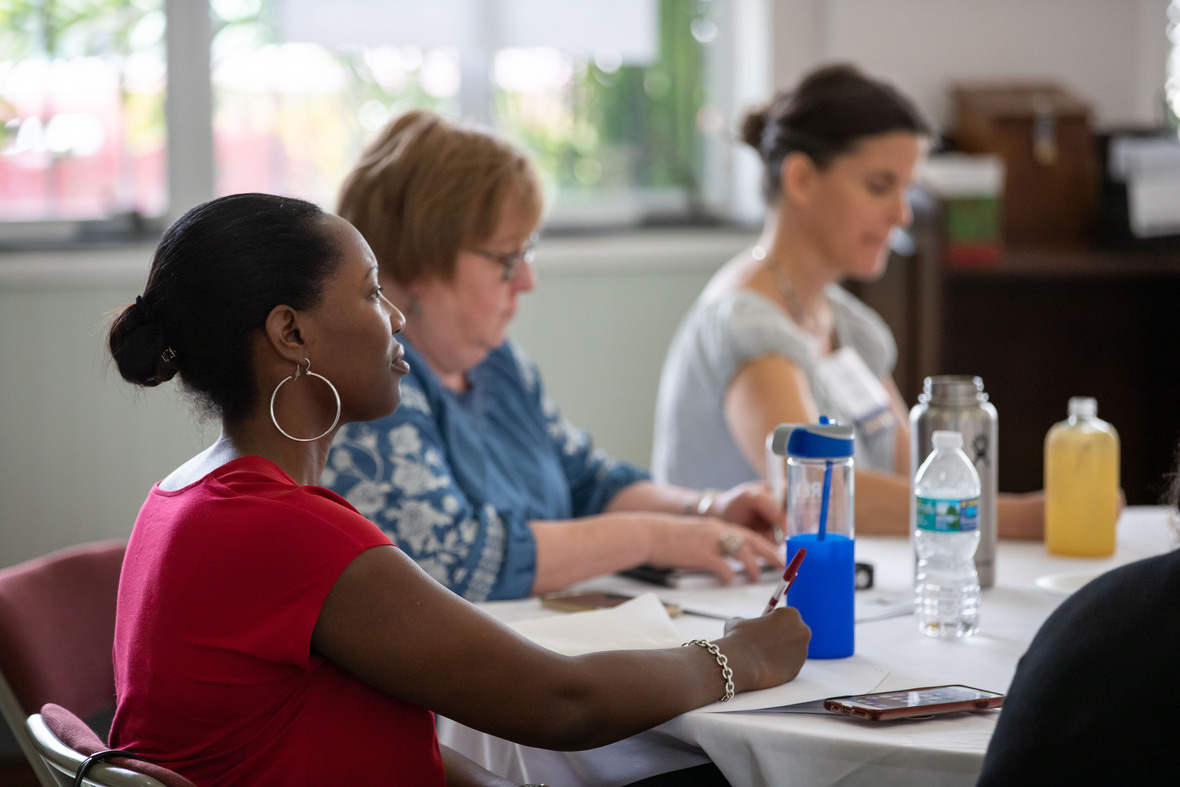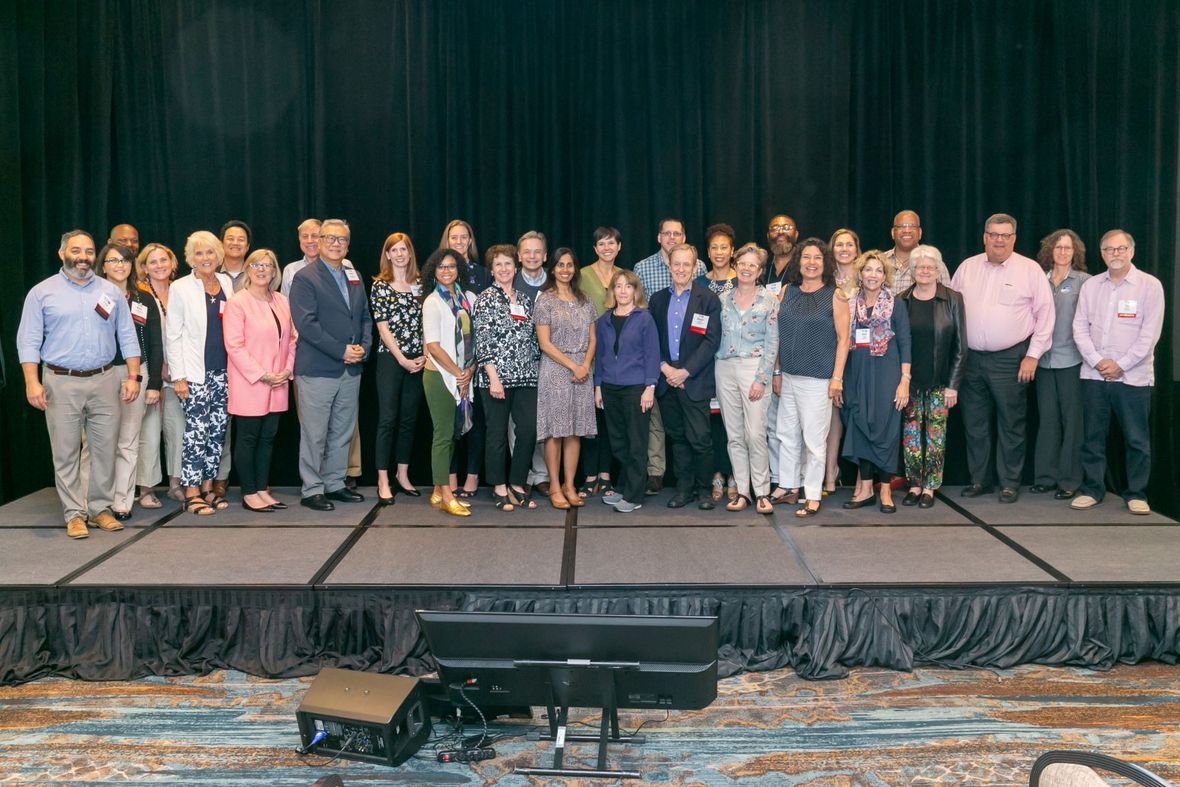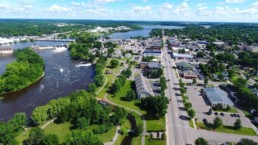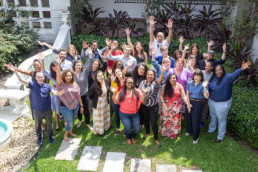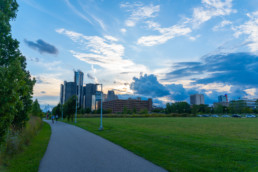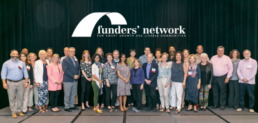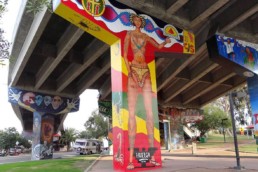Call for Ideas! Help us craft a learning agenda for #TFN2021
By TFN Staff
|
During these gut-wrenching times, it is easy — and understandable — to feel overwhelmed. Overwhelmed by an ongoing global pandemic that is extracting a disproportionately high toll on the health and incomes of communities of color. Overwhelmed by the wanton disregard for human life, captured in video after video. Overwhelmed by the recognition that safety nets — if they existed — have failed, social connections have frayed and corrosive abuses of power persist. But we also have an opportunity — and an obligation — to chart new courses despite turbulent waters. How do we help communities address and overcome the impacts of the novel coronavirus in ways that are urgent and equitable? How can we help dismantle the systemic racism that touch every aspect of our lives, including the food we eat, the air we breathe, the water we drink and the places where we work and play? And how do we use our privilege and power, as a sector and as individuals, to amplify calls for racial justice in ways that are meaningful, effective and authentic? You are invited to contribute your ideas and insights as we craft a learning agenda for our 2021 conference, one that is dedicated to helping our members and partners gain the tools, build relationships and craft strategies that will help us stand together, work together — and ultimately rise together — to meet this unprecedented moment. Call for Idea Submissions are due by Aug. 6. Please take a look at our Submission Guidelines for more information. Ideas can be shared via our Online Submission Form. We hope you'll join us March 15 to 17 for TFN's 2021 Annual Conference: Rise Together, tentatively scheduled for New Orleans, La. Read on for more information on our conference's focus and coronavirus contingency planning. |
|
Centering Racial Equity |
|
TFN’s mission is to leverage philanthropy’s unique potential to help create communities and regions that are sustainable, prosperous and just for all people. But we recognize that these goals cannot be achieved without first challenging and confronting the systemic imbalances in power, privilege and access to resources that disproportionately impact communities of color, specifically Black people, and create stark inequities that continue to harm racialized and marginalized people and places. In keeping with our theme — Rise Together — we're encouraging session ideas that are interdisciplinary, cross-cutting and grounded in racial equity. We are taking a different approach this year through this Call for Ideas (instead of a formal Call for Session Proposals), by taking the pulse of our membership to understand what issues or challenges are top-of-mind for you. |
 |
About Our Conference |
|
|
TFN’s 2021 Annual Conference: Rise Together will bring together funders from across North America to explore the strategies and stories that are creating more equitable, sustainable, and resilient places to live — work that has taken on increased urgency as we face the dual challenges of a global pandemic and structural racism. Our signature annual event is an opportunity to highlight philanthropy’s potential for meaningful impact in our regions and communities, and hear from diverse and thought-provoking voices on issues such as protecting our natural resources, building inclusive economies and addressing injustices. |
 |
COVID ContingenciesGiven the uncertainties of the ongoing coronavirus pandemic, and our commitment to prioritizing the safety of our members, team and their communities, TFN will plan for both in-person and virtual conference options. By baking contingencies into our planning, we will be able to pivot to an online model if needed. As described in the guidelines, we ask for your help and input in this new planning process through this Call for Ideas. Our goal is to share the learning, resources and best practices that will help our members deepen their impact as grantmakers and develop their professional networks — be it in person or virtually. We look forward to hearing from you! |
|
|
Know Your Network: Don Hickman of the Initiative Foundation
BY Martha Cecilia Ovadia
TFN Senior Program Associate for Equity Programs and Communications
Who are the people that make up The Funders Network? Know Your Network is an occasional Q&A series lifting up voices from across the network. In this post, we’re featuring a Q&A between Don Hickman of the Minnesota-based Initiative Foundation and Martha Cecilia Ovadia of TFN. Don is also a member of TFN’s Board of Directors and TFN’s Philanthropic Preparedness, Resiliency and Emergency Partnership, a learning cohort created to provide resources for community foundations to build their skills and leadership capacity in order to be better informed and prepared should a natural disaster strike their communities. (Responses have been edited for length and clarity.)
Q. I know you are currently the vice president for Community and Workforce Development for the Initiative Foundation in Little Falls, Minn., in addition to serving as a TFN board member. But we hear you were a scientist and community activist before joining the philanthropic sector. What was that like?
The first 20 years of my career was spent as an environmental scientist. I loved the field, which included time as a trail guide in Rocky Mountain National Park, surveying water quality in the Black Canyon of the Gunnison, organizing rural low-income communities in New England to protect water quality, working as a scientist and lobbyist for the Massachusetts Audubon Society, and studying the endangered Humpback Chub in the Grand Canyon.
Q. What brought you to philanthropy? Is there anything specific that has surprised you about working in the sector?
I had moved to Minnesota to marry my wife in the mid-1990s, and felt unfulfilled working as an environmental consultant. I started volunteering with local nonprofits, and the Blandin Foundation hired me as a field contractor. After about a year with Blandin, the Initiative Foundation hired me as their environmental program officer, and I’ve remained there so long that I’ve added a varied array of other foci, from improving access to quality, affordable childcare to helping launch a program for Somali immigrants to start their own businesses in Central Minnesota. Right now, my top priority is to help prepare for the economic impact of the closure of the largest coal power plant in the Midwest, which represents nearly 75 percent of the local tax base. Every day I am surprised and humbled at how hard people will work to improve their communities and help their neighbors when they’re offered the most modest of encouragement and occasional funding.
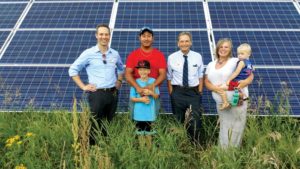
Q. You are very involved in our PPREP learning cohort. What is one thing you have learned working with PPREP that you think has been helpful or illuminating during the ongoing coronavirus pandemic?
The TFN team and peer foundations have really opened my eyes to how unequal access to resources and tools of resiliency are. The outcomes and recovery for a middle-class homeowner with insurance are so profoundly different than those available to the renter with no bank account or health care. Heaven forbid that their language or culture is different than the dominant culture. We know that compounds the inequities and presents even more barriers to equitable relief and recovery.
Q. In your role at the Initiative Foundation, you work with a lot of immigrant and refugee communities. What is one thing you wish folks knew about the people you are working with? And what is the hardest part of doing this work?
This element of our work is perhaps my greatest, and most unexpected joy. Central Minnesota (and especially the community of St. Cloud) is a major hub for refugees and immigrants; people who’ve fled very difficult situations in hopes of improving the lives of their families. If everyone had the work ethic and commitment to their families as the individuals I routinely engage with, I would have confidence that this country could overcome any challenge or obstacle. Unavoidably, I also see acts of hatred and prejudice, and it breaks my heart to think how quickly most of us have forgotten the immigrant experience of our ancestors.
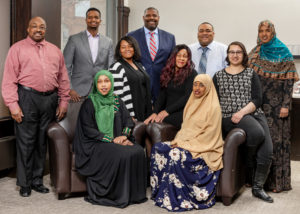
Q. In the past few weeks, we’ve witnessed the murder of George Floyd at the hands of police in Minneapolis — less than two hours from your home in Little Falls — which has prompted protests across the globe and a national reckoning on race. As someone who works closely with local non-profits in the region, how is this impacting the communities with whom you work? What do you see as philanthropy’s role in meeting this historic moment?
This is pretty painful. In Minnesota we liked to believe that we’re a more inclusive and progressive state. Four years ago, when Philando Castile was killed we told ourselves that a terrible thing had happened, but that now we’d changed the culture and it would never happen again. With the recent death of George Floyd none of us can deny that the percentage of bad outcomes of law enforcement encounters are horrific for people of color, including in our own state. For two weeks I was pretty deeply depressed, until I had an encounter with a TFN colleague from the Surdna Foundation, who told me that she believes that change can happen; that we’re in a time of awakening. In the weeks after that I’ve participated in conversations on equity on a daily basis, with people which whom the issue had never been raised before. If change were easy it would have been done long ago, and confronting systemic racism will never be easy. But I am prepared to believe that more and more people are ready to listen to others, work for change, and create a more just community. The arc of history…
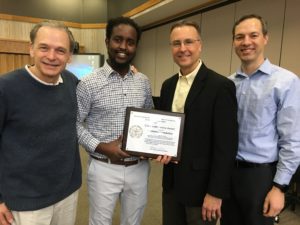
Q. With so many of us sheltering in place, and knowing you must have traveled quite a bit for work before we all hunkered down, can we live vicariously through you for a minute and ask what your favorite site visit or work trip has been so far?
That’s like asking someone to identify their favorite child! One of the joys of participating with TFN has been the varied “learning from place” experiences associated with PPREP, the River Partnership of Community Foundations, which ended a few years ago, or TFN’s conferences. I think the most memorable trip might have been to the Mississippi Delta, including stops of historical significance to the Civil Rights Movement and in musical history.
If I could host visitors to my region right now, I would take you to the Mosque and Islamic Center of St. Cloud, have the Somali entrepreneurs cater our lunch, ask friends at the Leech Lake Reservation to demonstrate how the Ojibwe people harvest wild rice, and meet some of the citizen-scientists working to prevent the spread of aquatic invasive species in our land of 10,000 lakes.
Q. We always like to ask about home. As a local in Little Falls, what is your perfect day in Little Falls? Where would you have lunch? What’s that secret place you wish everyone knew about?
The Mississippi River literally flows outside the door of the Initiative Foundation; on a spring day you can walk below the dam (once used to power paper mills) and feel its cold spray. The Charles Lindbergh childhood home is across the river, and Chief Hole in the Day (a key Ojibwe leader) is buried just upriver. Zebulon Pike reached this area in 1805 as part of an early expedition through what the Americans called the new Louisiana Territory. The downtown area is a classic small Midwestern town, with lovely restored storefronts. If you look closely at the granite edifice of the American Bank you can see that the name is not off-center, but until WWI was the “German-American Bank.” One can guess that the offending ethnicity was sandblasted away about this time.
The Black and White Deli is the favorite downtown lunch spot for many visitors, but I am equally fond of Little Fiesta and Sanchez Burrito, both owned and operated by Latinx families that now call Little Falls home.
North of town is the Camp Ripley National Guard Training facility, where volunteers from throughout the country come to practice artillery drills and night maneuvers. Interestingly, the land encompassed by the camp also includes the longest stretch of undammed Mississippi River in Minnesota, and is also home to a pack of around 40 timber wolves, and an equally robust number of black bears. Several winters ago, my wife spent her sabbatical radio-collaring and tracking both.
Life-long residents of the area likely would confess to a secret fishing hole (the region’s true religion), but I most treasure riding my bike on country roads, over hills and around the lakes, ideally on an autumn day when the leaves are ablaze, but the air is cool and the sunshine warm.
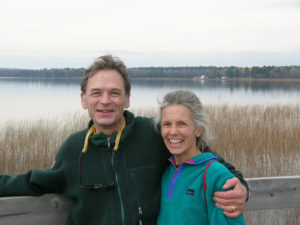
Q. We ask this of all of our Know Your Network contributors: What is something you do as a practice of self-care, especially in 2020 when this work is so stressful and requires us to really rise to the occasion?
I confess, the “stay at home” has been very gentle on me. I’m NOT spending two hours a day in my car, and can instead work longer while still having more time to jump on that bicycle or swim in my lake (once the water warms up). I also can’t help but reflect every day on the privileges of my position; both adults in the home are employed, our home is paid for, we could access health care if we needed it, our refrigerator is full, and our youngest child is able to continue her college classes from home on our sometimes spotty WiFi. So many of the residents of my region couldn’t list a single one of these blessings for themselves, so whenever I feel tired or frustrated by the challenges of choosing who does and doesn’t receive funding. I remind myself of all that I have to be grateful for, and hope I can bring hope to others.
______
About the Author
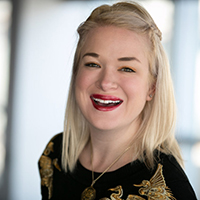
Martha Cecilia Ovadia is TFN’s Senior Program Associate for Equity Programs and Communications.
Featured photo at top: Aerial view of Little Falls, Minn. Photo credit: Little Falls Chamber of Commerce
Our Network. Our Voices: The Funders Network debuts new website (and a shorter name!)
BY Patricia L. Smith
TFN President & CEO
|
Never has it been more important for us as a network to come together to share our experiences, lift our voices and take action. We're grappling with an ongoing pandemic, a faltering economy and a nationwide reckoning on systemic and brutal racism in our society. Today, I'm proud to announce the launch of TFN's new website, a debut planned long before these current upheavals — but which comes at a time when we must make good on our commitment to help you, our members, deepen your learning and tell your stories. Voices of TFNOn our new site, you'll find a host of resources that will help you better navigate TFN's rich offerings of programs and resources, including a new section devoted to our approach to racial equity, a digital library featuring our most recent publications, and an interactive membership map to better identify potential connections in your region. And you'll find the voices of your colleagues and peers in the philanthropic sector throughout the website, most notably on our TFN Blog. You'll read about how PLACES Alum (and fellowship facilitator) Bina M. Patel is channeling the transformative power of outrage to meet this moment with purpose. You'll learn why greenways are an essential tool to help communities come together equitably in the COVID era from former TFN board chairs John Mittherholzer and Tom Woiwode. And you'll read current TFN board member Shawn Escoffery's compelling, gut-wrenching account of his arrest while protesting police brutality in Los Angeles, originally published in the Chronicle of Philanthropy. Shawn's piece is a cri de coeur, a call to action, and a must-read for the sector. This part rings especially true: "This is a time of reckoning for the philanthropic world, which despite good intentions has often struggled to adequately address the needs of Black and brown people with effective, compassionate, and sustained action. On the day after my arrest, my inbox was flooded with well-wishes from colleagues and peers: “How are you doing?” I wanted to answer with a better set of questions: What I am doing. What are we all doing?" It's a question I'll be reflecting on, especially as we head into a long holiday weekend celebrating this imperfect, imperiled country. Our New NameFinally, you'll see that our new logo indicates a new — and much shorter — name for our network. For two decades, we've been officially known as the "Funders' Network for Smart Growth and Livable Communities." But nearly all of our members (and most everyone else), has always referred to us as "TFN." So we decided to legally change our name to The Funders Network in a nod to brevity. Our new logo, with its various threads woven together, also serves as a visual reminder of our core identity. We are The Funders Network — emphasis on network: a group of people, with diverse backgrounds and areas of focus, connected by common goals and purpose. We look forward to strengthening those connections by sharing, learning and leading together. Today and always. About the Author |
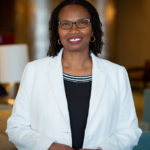
Patricia L. Smith is the president and CEO of The Funders Network, a robust network of more than 170 foundations, including place-based and community foundations as well as state, regional and national funders committed to creating equitable, sustainable and prosperous communities.
|
|
On Mobilizing Outrage
BY Bina M. Patel
CEO, Saathi Impact Consulting
and TFN PLACES Alum
Bina Patel is an alum of TFN's PLACES fellowship, a year-long leadership development program for professionals in philanthropy to better understand issues of race, equity and inclusiveness — and to then translate those skills and knowledge in to their grantmaking practices. She currently serves as a facilitator for the PLACES fellowship cohort, which is conducting its learning virtually this year. This post originally published on the Saathi Impact Consulting blog.
On a recent webinar, as the pandemic sealed us off in corners of bedrooms and makeshift home offices, the check-in question of the day was “How is this moment changing you?”
Suddenly, I was struggling, feeling tears well up at my exhaustion, of the overwhelming nature of recent events, the current uncertainty. And when I dug a bit more deeply I confronted the depths of my own rage at the unrelenting racism we witnessing every day, the abuses of power that go unchecked from our leaders, and the inequality that has been exasperated by the pandemic. I was overwhelmed -- trying to take in the ever extreme range of the rollercoaster feelings I was feeling. I was uncomfortable with these new corners of rage I was holding. I almost didn't recognize myself.
At the edges of this darkness was a glimmer. I saw at the jagged ends of my grief and exhaustion a glimmer of truth: this moment was making me more radical. I didn't say it out loud, but I saw it. I could feel it, this truth sitting at the edges of my overwhelm, patiently waiting.
To get to a place of new truth-telling and edge walking, of embracing the radical, I had to lean into the new kind of rage and outrage, not shrink from it. I had to expand to hold more of all of the feelings, expand to be able to hold the pain and rage, while also being able to function and be purposeful - to show up and do my job, and to still be able to take care of myself.
This wasn't the first time I felt this way. Not too long ago I stood on the land of the Sioux Nation at Standing Rock and listened to Elders, endured meetings full of "Karens", and had to shield myself from the macro-aggressions (*there is no such thing as microaggressions.) I had sat at immigration court and watched the proceedings of asylum seekers, stood at the border wall watching CBP, attended the funerals of black young men killed by police, observed policymakers make budget decisions with little regard to the humans affected, watched the news of the 2016 election, etc, etc, etc. This wasn't the first time and it of course won't be the last.
I knew that this outrage needed some movement - some way out of being labeled "outrage." It cannot be in vain and it can't take me out of my purpose.
For outrage to be righteous and rooted it must be of service to the collective.
To be of service, I had to resist the urge to shrink, to let it eat me up. I had to undo feelings of shame because some folks think outrage is too much, too unwieldy. I had to undo my own feelings of defeat because I had internalized that outrage meant I was failing to show up with love.
How could I be an ally, agitator, change agent, strategist, speaker, coach, and co-conspirator if I didn't feel outraged? How could I do the work of justice, equity, and inclusion if I rejected feeling pain and outrage?
Read the full post here.
About the Author
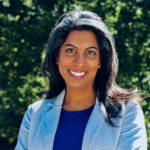
Bina M. Patel is the CEO of Saathi Impact Consulting, which partners with philanthropic, nonprofit, and social innovation organizations to advance justice, belonging, and equity. She is an alum of the PLACES 2012 Cohort. To learn more about Bina's journey as a PLACES alum, visit our PLACES X: Stories of Impact series.
Feature image photo credit: Biansho | Dreamstime.com
Paths to Healing: Greenways are essential in the COVID era
BY John Mitterholzer, The George Gund Foundation
and Tom Woiwode, the Community Foundation for Southeast Michigan
The Covid-19 pandemic crisis presents one of the biggest challenges our nation has faced. Not only are we grappling with a public health emergency and a faltering economy, but these twin crises have laid bare stark inequities in our communities. It has forced us to acknowledge what has been obvious for far too long — that we do not all enjoy the same opportunities, whether it’s economic equality, access to a healthy environment, or opportunities for social or cultural experiences. It has required us to think differently about how we live, work and play. And it is mandating that we create communities that bring people together to enjoy in those shared opportunities equally and equitably.
So what are our options? In this time of unprecedented challenges, the public has given us some pretty strong clues. When people are looking for solace, respite, an opportunity to get out and socialize, where have they gone? Trails, greenways, parks, public spaces. In droves. In volumes and numbers never seen before. The Rails-to-Trails Conservancy reports a surge of as much as 200 percent in trail use nationwide. In fact, the demand for access to places to walk or bike has prompted cities around the country — including Boston, Milwaukee, Chicago, Denver, and Washington, D.C. — to close streets to vehicle traffic and open them up to pedestrians and bikers. Oakland has dedicated 74 miles of streets to non-motorized use.
The uptick in activity is not surprising, given the legions of people who have felt trapped inside their homes as cities across the country have restricted access to most everyday activities. But the potential benefits of these outdoor spaces go beyond just offering a place for a pent-up population to stretch their legs. It’s not uncommon to think of trails and greenways as designed for recreation experiences. But they are so much more.
Greenways create economic opportunity. According to a 2012 study by The American Association of State Highway Transportation Officials (AASHTO) study, every $1 million invested in greenways, bike lanes and sidewalks, creates 17 jobs — significantly more than any other kind of infrastructure project. A 2019 study for the East Coast Greenway Alliance showed a more than ten-fold return on the impact of greenways investment.
They provide health benefits. While walking, running and bicycling can be enjoyable health preventative measures, the benefits don’t just stop at health care cost savings. Physical activity also increases workplace productivity, and people using trails enjoy an intangible boost to their overall well-being.
Trails and greenways help improve air and water quality. They take cars off the road, and, by protecting land along rivers and streams, greenways prevent soil erosion and filter pollution.
They improve access to mobility and transportation options. Greenways offer transportation options for those who would like a choice other than a car, or who need that choice because they don’t have other transportation options. In cities like ours, Detroit and Cleveland, roughly one-third of the resident population does not have access to a personal vehicle, in communities with limited public transportation options. Greenways link people and institutions, community assets, neighborhoods and each other in ways that are much more personal and connected.
And one cannot ignore the public voices being raised right now. In order to reap the full benefits of these public spaces, we need to be mindful of creating spaces where everyone feels welcome — and ensure that resources and access are equitably distributed. Creating communities that are sustainable, prosperous and just, a key element of The Funders Network’s mission, means acknowledging and undoing the racialized histories of our built environments that have allowed inequities to thrive.
It is essential that we create communities that serve everyone, equitably. That means we need to rethink how communities are designed, how they function, and we need to ensure that all people benefit from community assets and resources. The outdoors, and outdoor experiences, should be safe and enjoyable for all people, including people of color. We must design communities so they serve people — all people. Greenways help in doing that.
So why raise this issue now? Greenways and trails may be the best examples around of really effective public-private partnerships. TFN members have been leading the way in developing truly transformative projects that are changing the way their communities engage their residents. They include:
*The William Penn Foundation has been the driving force behind greater Philadelphia’s 300-miles-and-growing Circuit Trails;
*The Hyde Family Foundation is helping to connect Memphis to its neighboring communities along the Wolf River Greenway;
*Thanks to the leadership of the Walton Family Foundation, the 36-mile Razorback Regional Greenway links Bentonville to Fayetteville and all the communities in northwest Arkansas.
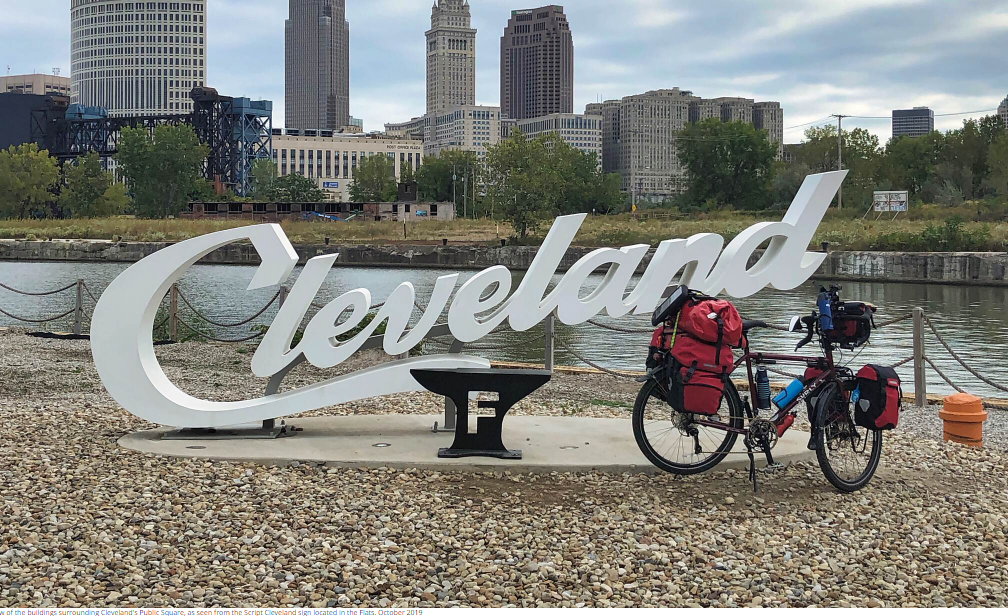
And in our own communities in Michigan and Ohio:
*A philanthropic partnership that includes the Community Foundation for Southeast Michigan, The Kresge Foundation, the Ralph C. Wilson Jr. Foundation and other philanthropic partners are working together to build a 35-mile loop trail that will connect all the neighborhoods in Detroit, to each other and to the revitalized Detroit Riverfront..
*The Cleveland Foundation and The George Gund Foundation have worked with local partners to create the Lake Link Trail, a project that uses greenspace and trails to connect the Cuyahoga River to Lake Erie. The Lake Link Trail connects the oldest public housing development in the country, Lakeview Terrace, and a low-income senior housing complex, Riverview Terrace, to the lake.
There is one common theme here, and it is especially important at this particular time. These philanthropic resources and private investments complemented and leveraged public dollars to build the above-mentioned extraordinary trail networks, and so many more around the country. Because of what we’re seeing today regarding greenways — the overwhelming public demand, the extraordinary and varied community benefits, and this unique moment in time — trails and greenways must be considered essential infrastructure in any infrastructure stimulus bills.
What can you do?
Think differently about trails and greenways. See them as they are and can be — ways to promote equity, create art, stimulate the economy, protect the environment, create safe spaces for families and children, provide transportation options for all, and serve as transformative community development.
Take steps to ensure that trail and greenway projects do not exacerbate racial and economic disparities. Fund community organizations that are full participants in the decision-making processes. Community leaders, in particular people of color, must be authentically engaged in the policies, planning, design and development of trails and greenways.
Help make the case to Congress and spread the word. Greenways are essential infrastructure. Over 150 trail organizations and community development groups have signed on to a letter, asking Congress to include greenways in the next stimulus bill. Learn more about this effort by contacting Dennis Markatos-Soriano, president of the East Coast Greenway Alliance, at dennis@greenway.org. The text of the letter can be found here.
Join TFN’s Collaborative on Mobility and Access to learn more about creating mobility options that are environmentally beneficial, economically sound and equitable for all. (For more information, reach out to program lead Martha Roskowski at mailto:martha@furtherstrategies.com.)
We hope you join us in recognizing the many contributions of greenways, and in working toward communities that are greener and healthier — for all.
Yours for a greener, more equitable world.
About the Authors:
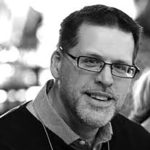
John Mitterholzer is a senior program officer at The George Gund Foundation. He served on TFN’s Board of Directors from 2009 to 2018, serving as chairperson from 2016 to 2018.
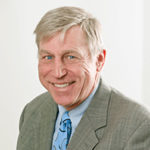
Tom Woiwode is with the Community Foundation for Southeast Michigan. He served on TFN’s Board of Directors from 2011 to 2020, serving as chairperson from 2018 to 2020.
Featured image photo credit: Jenishayoga | Dreamstime.com
ICYMI: Catch up on Inclusive Economies Reads
By TFN Staff
Looking to catch up on your reading?
In case you missed these posts earlier in the year, we featured three guest bloggers to reflect on key lessons and takeaways shared during TFN's Inclusive Economies inaugural meeting in the fall.
The Road to Good Jobs and Quality Work | Sara McCarthy, Director of Communications at the Fund for Our Economic Future.
Investment, Displacement & Engagement | Cari Morales, National Urban Fellow at the Cleveland Foundation
Awareness Building to More Thoughtful Action | Treye Johnson, Federal Reserve Bank of Cleveland

About Inclusive Economies
TFN’s Inclusive Economies working group brings place-based funders and related partners from across the sector together to build working relationships, advancing understanding of practices and policies that lead to inclusive prosperity, and taking joint action that drives the field forward. We apply a three-part focus — race, place and prosperity — to economic growth and development. A particular goal is connecting people and neighborhoods of color to employment and wealth-building opportunities through investment, systems change, and policy reform.
Inclusive Economies launched in 2019, replacing TFN’s Restoring Prosperity in Older Industrial Cities working group. This new group represents a vision of shared, restorative, and equitable prosperity in places of all types (urban, suburban, and rural), sizes (neighborhoods, cities, towns, and regions), and market conditions (weak, moderate, and strong).
For more information about TFN's Inclusive Economies, contact TFN President and CEO Pat Smith at pat@www.fundersnetwork.org.
Election Results: Meet New TFN Board Members & Officers
By Pat Smith, TFN President and CEO
We're excited to announce three new additions to our TFN Board of Directors: Michael Coffey, Eric Muschler and Karla Twedt-Ball.
Please join me in congratulating our newest members of the TFN Board of Directors, as well as welcoming back members who were up for reelection this voting cycle. Additional congrats to our board members who will be serving as board officers, including our new Board Chairman Craig Martinez.

TFN Board of Directors Class of 2020-2022 and Board Officers
At a meeting held Jan. 24, 2020, in Miami Beach, Fla., TFN’s Board of Directors approved the following slate for the class of 2020-2022 and recommended a vote in favor of election. TFN members cast ballots in March approving the 2020-2022 slate. (Our board serves staggered terms, so not everyone is up for reelection at the same time.)
Please note that Michael Coffey, Eric Muschler and Karla Twedt-Ball are being elected to their first terms of office. The remainder pictured below are current directors whose terms of office were renewed during this voting cycle.
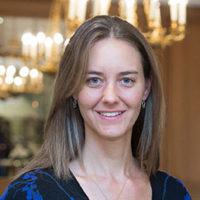
Jessica Boehland
Senior Program Officer, The Kresge Foundation
(Renewed for 2020-2022 term.)
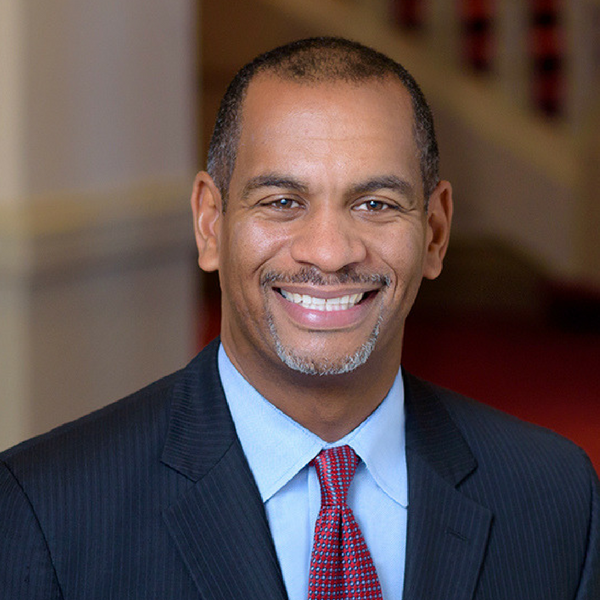
Michael Coffey
Senior Program Officer, The Greater Cincinnati Foundation
(New member for 2020-2022 term.)
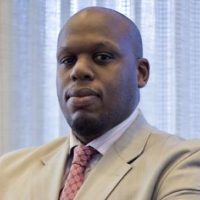
Shawn Escoffery
Executive Director, Roy and Patricia Disney Family Foundation
(Renewed for 2020-2022 term.)
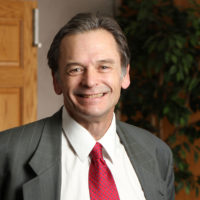
Don Hickman, Vice Chair
Vice President for Community and Workforce Development, Initiative Foundation
(Renewed for 2020-2022 term. Board officer position is for one year.)
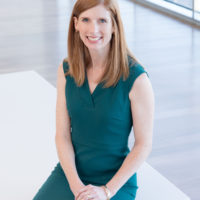
Elizabeth Love, SecretarySenior Program Officer, Houston Endowment
(Renewed for 2020-2022 term. Board officer position is for one year.)
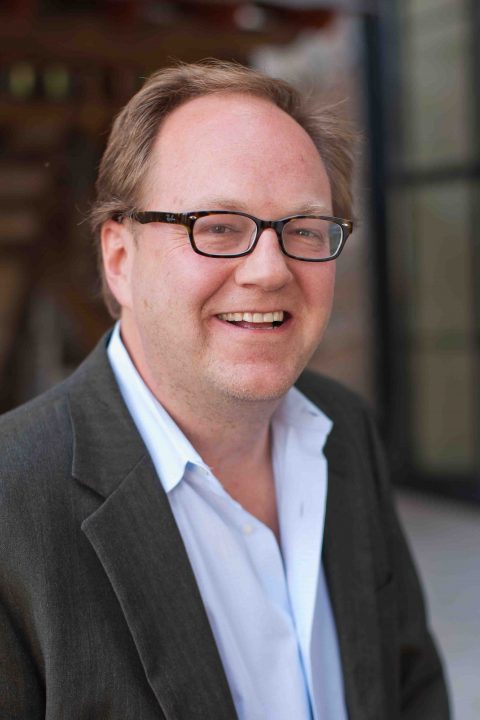
Eric Muschler
Program Officer, McKnight Foundation
(New member for 2020-2022 term.)
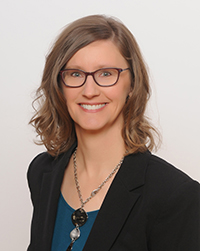
Karla Twedt-Ball
Senior Vice President, Greater Cedar Rapids Community Foundation
(New member for 2020-2022 term.)
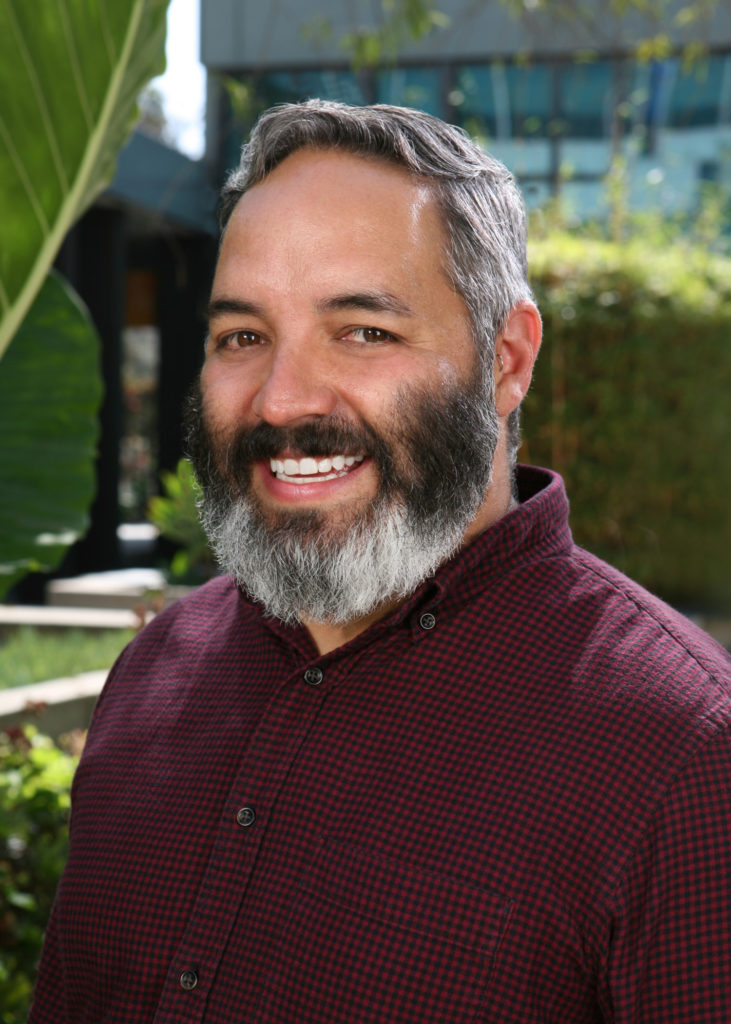
New TFN Board Chairman
Craig Martinez, Chairman
Program Officer, The California Endowment
We are thrilled to share the news that Craig Martinez was elected to serve a two-year term as chairman of TFN's Board of Directors. He was first elected to the TFN Board of Directors in 2015 and is currently co-chair of TFN's Smart Growth California Steering Committee.
He is a proud alum of TFN's equity-focused PLACES Fellowship's 2013 cohort, and is the first PLACES alum to serve as chairperson of the TFN Board of Directors!
(We should also note that Craig was one of the co-chairs of our 2020 Annual Conference in San Diego. Although our conference was ultimately cancelled, it's only fitting we acknowledge the hard work that went into the planning of the conference.)
Remaining Board Members
TFN Board of Directors whose terms were not up for renewal this year are:
C.J. Eisenbarth Hager
Director, Healthy Communities, Vitalyst Health Foundation
Michelle Knapik
President, Emily Hall Tremaine Foundation
Scot Spencer
Associate Director, Local Policy, The Annie E. Casey Foundation
Kellie Terry
Program Officer for Sustainable Environments, Surdna Foundation
Continuity of our board and its duties is an essential component in ensuring our work moves forward as seamlessly as possible, especially as we navigate the days and weeks ahead.
We sent virtual ballots to the primary contacts for organizations that are members in good standing as of March 31, 2020. (For more information about the annual election of TFN directors, please see the Election Information Guide.)
Thank you everyone who took the time to cast their ballots.
And thank you to the TFN Board of Directors for their ongoing support of the network and commitment to creating communities that are equitable, sustainable and prosperous.
CANCELLED: TFN's 2020 Annual Conference
By Pat Smith, TFN President and CEO
We regret to share the news that we have cancelled TFN’s 2020 Annual Conference, which was to take place March 16-18 in San Diego.
As we continued to monitor reports about the spread of the novel coronavirus over the past weekend, including the uptick of cases on the west coast and advisories for those in at-risk demographics to limit travel, it became clear that we could not in good conscience move forward with such a large-scale event.
This was a difficult decision to make, especially in light of the considerable investment of time, talent and resources that we — along with our session designers, speakers and other partners — have committed to the planning of our annual conference as well as the PLACES Fellowship Alumni Gathering and other pre- and post-conference events.
In an abundance of caution, and in consultation with our staff and TFN Board of Directors, we made this decision based on our commitment to keep the health and safety of our attendees, partners and TFN team a topmost priority. We also heard and took seriously concerns from those who were not primarily worried about the risk to their personal health, but feared that attending such a large event may increase their risk of exposing loved ones and others in their communities to the virus.
As an organization committed to equity and economic inclusion, we also considered the financial impacts our cancellation would have on vendors, contractors and small businesses who were counting on our business. But we also fielded concerns from several vendors who expressed reluctance in providing services for an event that would attract hundreds of travelers from across the U.S. and Canada.
We took all of this into account before making what we ultimately felt was the right decision for our network.
Deepest Gratitude
TFN takes tremendous pride in organizing a conference that brings together leaders from across the sector to learn and share knowledge — but it has also been, over the past two decades, an event that brings together friends and colleagues that have forged deep bonds over a shared commitment to creating communities that are sustainable, prosperous and just.
I want to share our profound thanks to our co-chairs, Craig Martinez of The California Endowment, Kellie Terry of the Surdna Foundation and Lydia Van Note of The San Diego Foundation for their incredible support throughout the year-long process of planning the conference. Also deserving of the deepest gratitude: the many sponsors, speakers, session designers, program partners and others, including the TFN board, who have worked so hard to put together what would have surely been an inspiring and enlightening event in San Diego.
Finally, I want to acknowledge the hard work and dedication of the TFN team whose resourcefulness, diligence and grace under pressure never ceases to amaze me.
Next Steps
In the coming days, our team will be looking at ways to re-think conference programming as virtual events or other learning opportunities. Please reach out to Lesmarie Nicholson if you have questions about your session or event.
For those who have already paid registration fees, we will be providing refunds upon request. We ask that you consider your fee a donation to TFN in light of the considerable expenses already committed to planning the conference and securing our venue. (Please reach out to Yleinia Jobe with any questions about registration fees.)
We encourage you to reach out to our venue, the US Grant, to cancel your hotel reservations as soon as possible. The hotel requires 72-hour notice before your arrival day to avoid cancellation fees.
Putting Equity First
Even though we are truly saddened to cancel #TFNSanDiego, we are aware that the potential health, economic and social impacts of the coronavirus on our communities far outweigh any impacts on an annual conference.
We also take heart in the knowledge that TFN’s overriding mission is far greater than any one event.
We will be working to provide resources and other learning opportunities for funders as they and their organizations work to formulate strategies that will support those directly or indirectly impacted by coronavirus. As funders with close ties to the people and places you support and serve, we encourage you to be mindful of the important role philanthropy plays in ensuring responses to the coronavirus pandemic align with our values.
We know that low-income communities and communities of color will almost certainly face a disproportionate impact, including workers who rely on hourly wages or gig-economy jobs that do not have the safety-net resources of paid sick days and other employer benefits. And we have seen reports of xenophobic and racist attacks targeting Asians and Asian-Americans.
Read on for resources for funders that we hope will be helpful in navigating the many implications the pandemic will have for the people and places we care about, while keeping the values of equity, inclusion and justice front and center.
Again, our deepest appreciation to everyone for all of the hard work and long hours that they’ve put into the planning of our conference.
We wish everyone health and well-being today and in the days ahead.
Thank You to our Sponsors!
Even though we have called off our 2020 Annual Conference, we would like to acknowledge and thank our sponsors for their support:
Amalgamated Bank
The California Endowment
Funders for Housing and Opportunity
Gifford Foundation
The Kresge Foundation
Neighborworks America
William Penn Foundation
The San Diego Foundation
TFN Board of Directors
Resources for Funders
Please read, and feel free to share, these resources. We will continue to compile and distribute information in the days ahead via the TFN blog and other platforms. (If you have additional resources to share, please reach out to TFN Communications Director Tere Figueras Negrete)
Asian Americans/Pacific Islanders in Philanthropy
• AAPIP statement on how funders can combat xenophobia and other calls to action amid COVID-19 concerns.
The California Endowment
• Get the Facts: Novel Coronavirus 19 Resources for Partners (includes bilingual fact sheets and posters in both English and Spanish.)
Center for Disaster Philanthropy
• Overview and daily updates on COVID-19
• CDP's critical needs list for how organizations wanting to respond can best proceed.
• CDP also has created a COVID-19 Response Fund that provides an opportunity for donors to meet the ongoing and ever-expanding challenges presented by this virus. CDP has also created a list of suggestions for foundations to consider related to disaster giving.
• Webinar recording: CDP's COVID-19 Coronavirus: How Philanthropy Can Respond
• Webinar recording: CDP's Complex Humanitarian Emergencies: Philanthropy’s Role in Recovery
• CDP web page: Pandemics and Infectious Diseases
Council on Foundations
• Coronavirus resource page.
Robert Wood Johnson Foundation
• Read this excellent Op-Ed in the Washington Post by RWJF's president and chief executive, Richard E. Besser (who is also a physician): As coronavirus spreads, the bill for our public health failures is due: "Our nation’s predicament today is both tragic, because so many people will likely suffer, and maddening, because it didn’t have to be this way."
World Health Organization
• Getting Your Workplace Ready for COVID-19
Beyond the breakout sessions: #TFNSanDiego mobile workshops offer a chance to explore & engage
By TFN Staff
TFN’s annual conferences offer insight on a range of issues at the intersection of equity, environment and economic opportunity — and not just within the confines of the conference venue. Our mobile workshops offer a chance to explore and engage with the communities in our conference city. Our San Diego Mobile Workshops will delve into topics such as gentrification, environmental justice, immigration, transit and growth and development. TFN's 2020 Annual Conference: Bridge the Divide, takes place March 16-18.
All mobile workshops take place Tuesday, March 17. Read below for more information on this year's offerings. To learn more about our conference, including an updated agenda, click here.Registration for mobile workshops will be available on site during the conference. Be sure to sign up early, as space is limited!
Food for Power
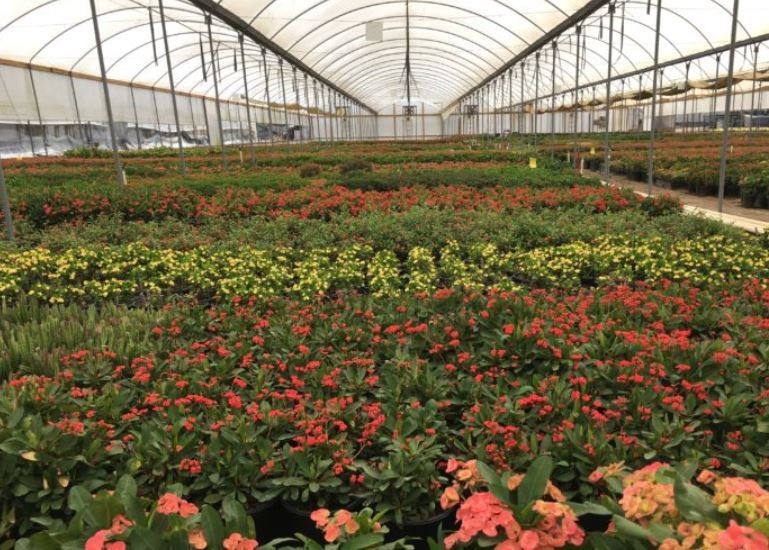
Our Food for Power mobile workshop will explore ways urban agriculture and food systems can fight isolation, displacement and gentrification and help communities become more empowered, vibrant and healthy. One in every seven San Diegans is food insecure. This figure includes the one in five children in the county that are food insecure. The data is abundant on the long-term effects of lacking nutritious food, especially for young and growing minds and bodies. Growing inequity and food deserts limit the financial resources and access families have to healthy foods. In a region that is one of the nation’s top refugee resettlement destinations and with a high percent of immigrant families and communities from throughout the world, food takes on an important cultural and social significance that can underlie New Americans’ transitions to life in this country. This site visit will take participants through a fascinating, and tasty, tour of the food access activism in this region.
The Border, Climate Change, and People on the Move
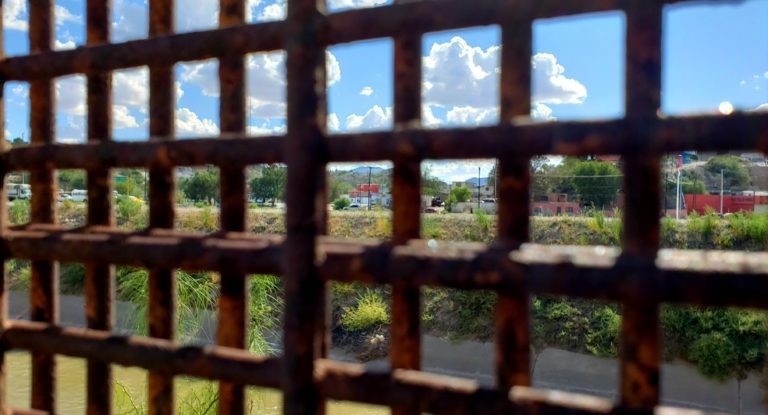
U.S. federal policy has always impacted the San Diego-Tijuana border region. More recently, larger groups of migrants, problematic U.S. immigration policy and a lack of permanent infrastructure for responding to how people move through this dynamic region, have fueled a harmful narrative. This narrative serves the rhetoric around a border wall that threatens the interdependence of border communities and critical habitats in a biodiversity hotspot. See the border — explore the connections between climate change, ecological resiliency and immigration. Hear from experts on extirpation and extinction pressures to native flora and fauna. Learn about the migrant experience and what the changing legal landscape means for people on the move. Learn why, no matter where you live, the border matters to you.
Please note: In addition to this mobile workshop, TFN is presenting a post-conference tour in partnership with the International Community Foundation and Hispanics in Philanthropy that will take funders across the U.S.-Mexico border on Wednesday, March 18. There is a $100 fee for the Post-conference Tour: U.S.-Mexico Border, so be sure to indicate if you plan to attend when you register for conference.
The Rising Seas & San Diego Bay
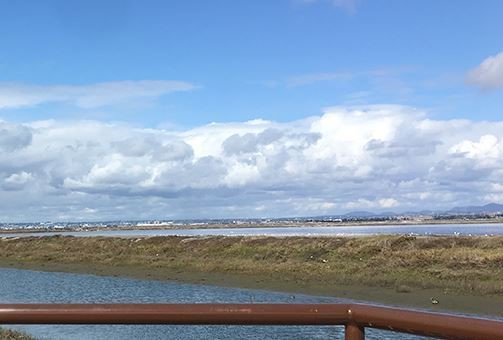
Within a mere 12-mile span, San Diego Bay’s waterfront boundaries are home to five independent city jurisdictions and some of the region’s most important military installations. These bayside communities are also facing the twin pressures of rising seas and massive growth and development. Join a multi-modal site visit that will take you around San Diego Bay and through communities grappling with the implications and politics of managed retreat in response to rising sea levels and coastal flooding, as well as the potential impacts of a large-scale waterfront development that would include a 1,600-room hotel and 400,000-square-foot convention center.
Environmental Justice, Gentrification & Reclaiming Communities
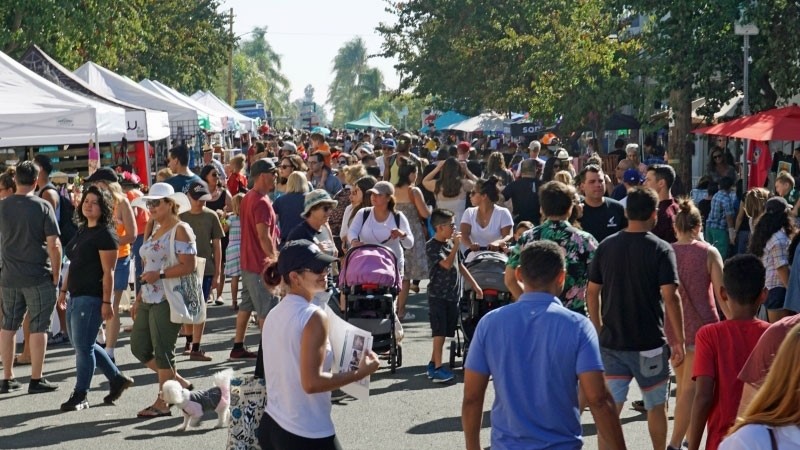
San Diego County is home to communities that are among the most vulnerable to pollution in the state. This mobile workshop will take us through two such communities, Barrio Logan and National City, both examples of how low-income communities and communities of color are disproportionately affected by poorly conceived, and often racist, planning approaches. These communities equally exemplify the power of organizing for environmental justice — efforts that celebrate a vibrant cultural identity and achieve healthy, art-filled, reclaimed communities. We’ll experience the highlights of these communities, as well as learn about the impacts of industrial zoning in densely residential neighborhoods and transit measures slated for the 2020 ballot. We’ll also examine how the forces of gentrification are changing these long-standing environmental justice communities.
Housing, Transit & Inclusive Economies
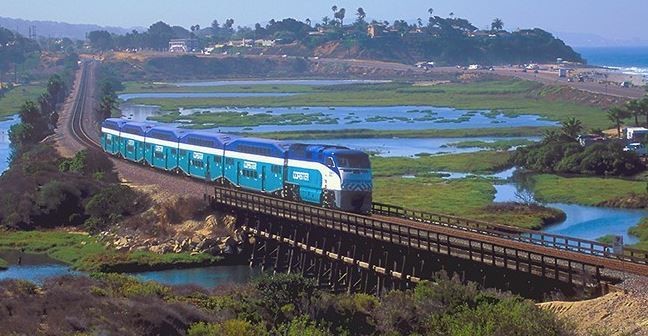
According to The Housing and Transportation Affordability Index San Diego, moderate-income families pay an average of 67 percent of their household income towards housing and transportation expenses alone. This rate rises sharply for low-income San Diego households. The 2020 ballot may likely contain both transit and housing measures that can radically change the region’s capacity to respond to a growing housing crisis and need to build a future-facing transit system. This mobile workshop will take participants through rapidly gentrifying communities that are currently home to much of the county’s immigrant and refugee communities, including City Heights and El Cajon in East County. We will explore how housing and transit efforts are trying to better connect where people reside and work — and how inclusive economic growth strategies connect, or don’t, to how San Diegans live and move through the region.

Registration & Lodging
TFN’s annual conferences bring together leaders in philanthropy from across the sector who are committed to creating communities that are sustainable, prosperous and equitable — and who are looking to grow their network and deepen their professional relationships.
Join us to learn ways to increase the impact of your grantmaking and connect with a network of national and place-based funders and leading practitioners.
Our conference will offer thought-provoking speakers, breakout sessions and mobile workshops. Registration is open to staff, directors, and trustees of all grantmaking organizations.
(Discounts available for members of San Diego Grantmakers, Southern California Grantmakers and Northern California Grantmakers.)
TFN’s 2020 Annual Conference takes place March 16-18 at the US Grant Hotel in downtown San Diego.
The landmark hotel is nestled in the city’s vibrant Gaslamp Quarter, known for its rich Victorian architecture and history. (And there are several local attractions and landmarks to enjoy nearby.) Be sure to book your room early in order to secure our TFN Annual Conference Rate.
Stay Tuned!
Please be sure to check out our conference webpage for more information on registration, events, and updates on speakers and sessions, as well as updates on pre- and post-conference events for those who may want to lengthen their stay with us in San Diego. (And be sure to follow us on Twitter @funders_network for more #TFNSanDiego news.)

Inclusive Economies: The Road to Good Jobs and Quality Work
By Sara McCarthy is Director of Communications at the Fund for Our Economic Future
The work of TFN’s new Inclusive Economies working group began in earnest with the group’s November 2019 inaugural annual meeting in Cleveland. This is the third in a series of guest-authored posts that reflect on key meeting sessions and topics. (Click to see the meeting agenda and read speaker bios.)
Entangled with concerns about automation and job scarcity, few topics elicit more debate than “the future of work.” For Inclusive Economies' panel on the topic, TFN asked Heidi Shierholz, senior economist at the Economic Policy Institute in Washington, D.C., to lay the groundwork for an evidence-informed discussion of the trends shaping the future employment environment, and their implications for marginalized workers. Shierholz’s remarks prompted spirited exchange among fellow panelists, who brought a wealth of policy, research, workforce, capital deployment, advocacy, and power-building expertise to bear on the question of what it will take to create well-paid, high-quality work for all. Here, Sara McCarthy of the Fund for Our Economic Future shares the top-line takeaways from the discussion.
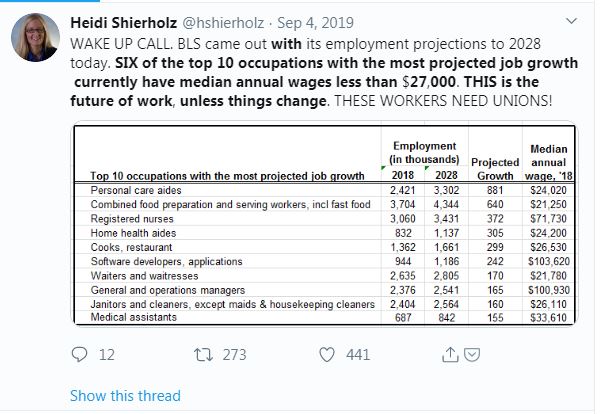
This tweet, originally posted after the Bureau of Labor Statistics released its 10-year employment projections last September, neatly encapsulated economist Heidi Shierholz’s central message to the funders gathered to hear from her and other panelists during their session at the Inclusive Economies inaugural meeting. Contrary to fears, the biggest threat to working people is not that automation and artificial intelligence will reduce the overall number of available jobs. Throughout history, jobs lost to technological change have been offset by the rise of new jobs. Rather, Shierholz says, the real threat to workers, especially to women and people of color, is that so many of the jobs available in the future will pay so little.
This assessment set the stage for a lively and occasionally heated discussion of how this national trend is playing out now in local communities. Panelists’ concerns included the validity of the employment data and the effects of automation on individual people; the push for entrepreneurship versus employment (and the detriments of that); the relationship between employer and employee; and the barriers that exist to quality work.
A consistently unifying theme was the centrality of race in workforce discussions. As panelist Caryn York, CEO of Job Opportunities Task Force in Baltimore, asserted, “The workforce is not monolithic. Race and place have to be front and center when we deal with these challenges.”
Another point of agreement: Programmatic responses won’t be enough to reverse decades of declining wages and erosion of worker supports. Meaningful change in the workforce arena will require policy change.
For Shierholz, this means a multi-pronged approach to ensure worker well-being, including a stronger safety net and a good jobs agenda based around support of unionization, increasing the minimum wage, and paid time off, as well as strong enforcement of these policies.
Where does philanthropy fit in? The panelists offered several concrete suggestions during the session, moderated by Emily Garr Pacetti, vice president and community affairs officer for the Federal Reserve Bank of Cleveland.
Fund research. This is hugely important when it comes to policy work, York said. Panelist Carmen Rojas, founder of The Workers Lab in Oakland, Calif. (and incoming president and CEO of the Marguerite Casey Foundation), added that funders often shy away from policy work that has a value statement attached to it. There is confusion that this is inherently partisan, she said. “And it’s not. As funders in this space, we need to keep pushing.”
Trust more. “We see capital markets consistently fail low-income communities and communities of color,” said Michael Jeans, president of Growth Opportunity Partners in Cleveland, who also participated on the panel. “Let’s create mechanisms where we aren’t telling people we trust them, we simply trust them. … Are we giving the capital to the people who look like these communities and people who care about these communities?”
Reframe the narrative on working people. “Is the support of entrepreneurship by philanthropy contributing to the dilution of worker power?” one audience member asked. “We have all kinds of jobs. We need to make sure those jobs are good,” Rojas said. “We look down on working people in this country. That is so damaging. We need to make the distinction between employment and entrepreneurship, and make the distinction about what we want from those.”
About the Author
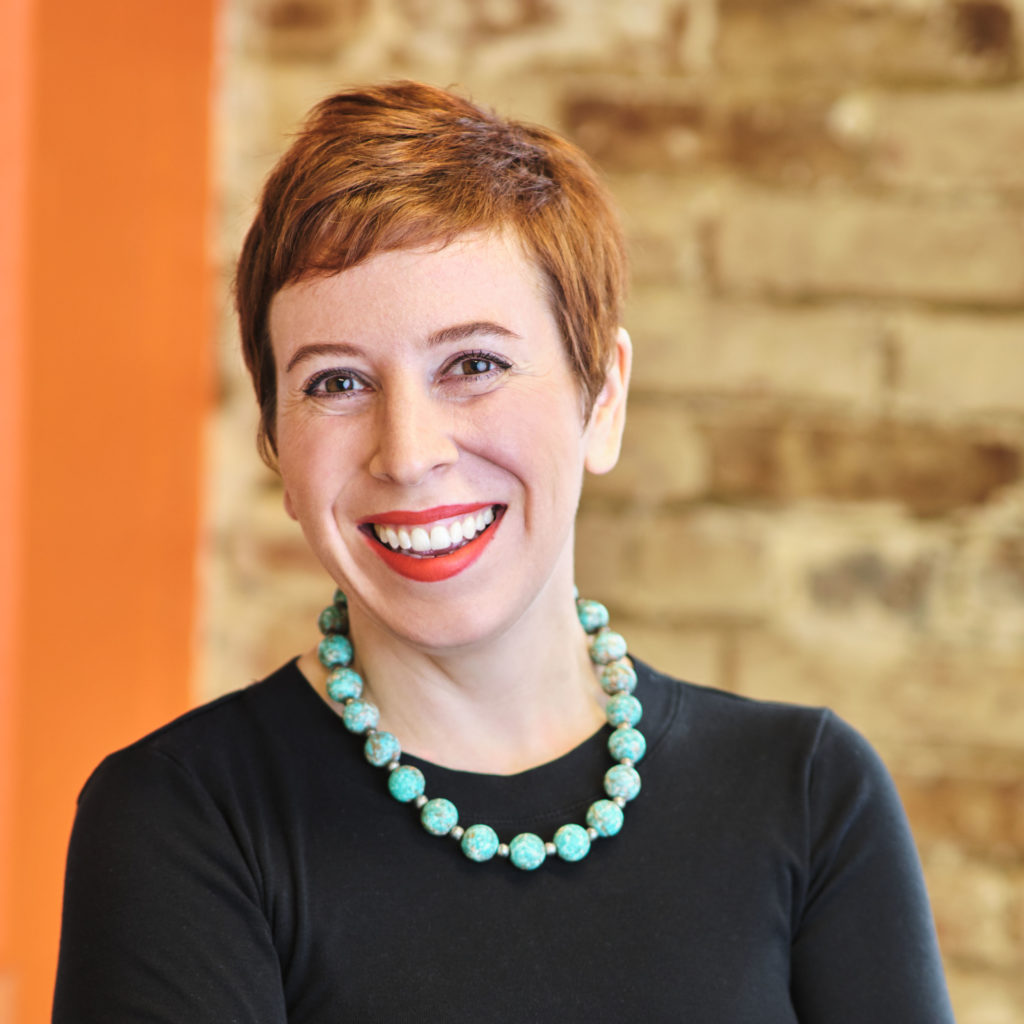
Sara McCarthy is Director of Communications at the Fund for Our Economic Future, where she leads the Fund’s awareness building efforts, overseeing the strategic communications of a wide variety of Fund initiatives, including The Two Tomorrows, The Paradox Prize and job hubs. Sara grew up in Warren, Ohio, and is proud to be a part of its manufacturing heritage, having worked at a now-shuttered steel mill while pursuing a bachelor's degree from John Carroll University. Sara spent several years as a business journalist, first in Cleveland then in New York, before earning a master’s degree in public service at DePaul University in Chicago. She spent a short time slinging pies at a bakery before returning to Northeast Ohio to work for the Fund for Our Economic Future.
More in this Series
You can read additional takeaways from the inaugural Inclusive Economies meeting in this blog post series:
Treye Johnson of the Federal Reserve Bank of Cleveland: “Inclusive Economies: Awareness building to more thoughtful action.”
Cari Morales, National Urban Fellow at the Cleveland Foundation: Inclusive Economies: Investment, displacement & engagement

